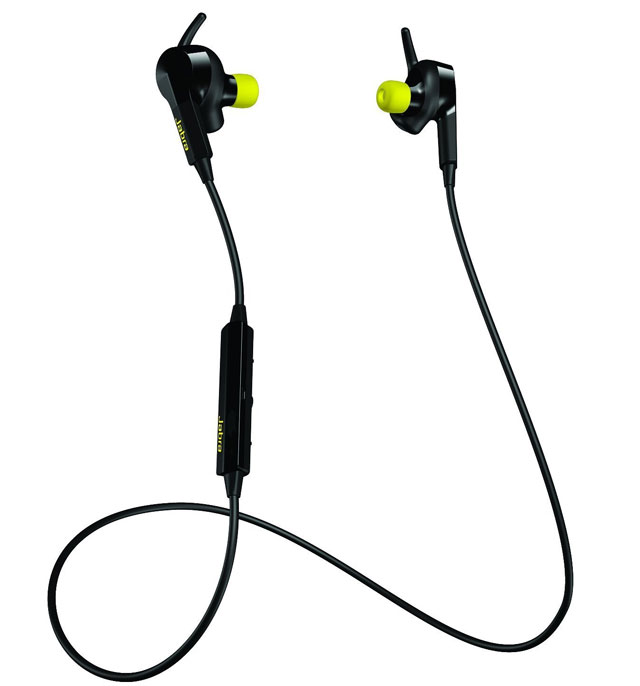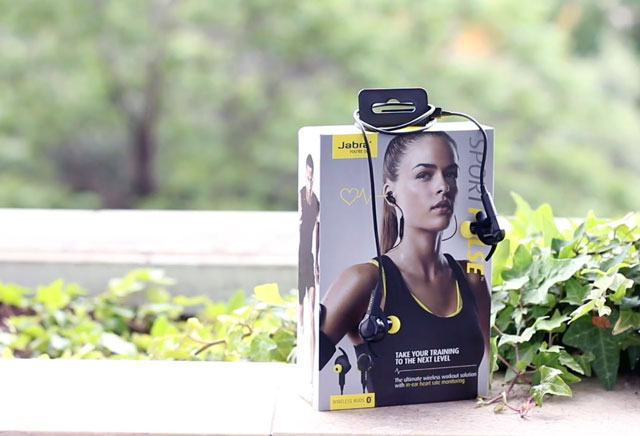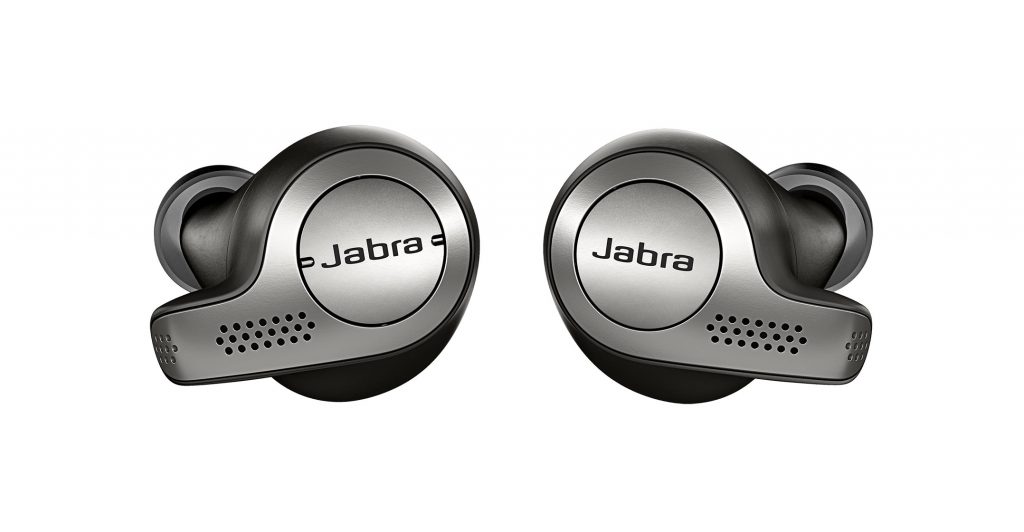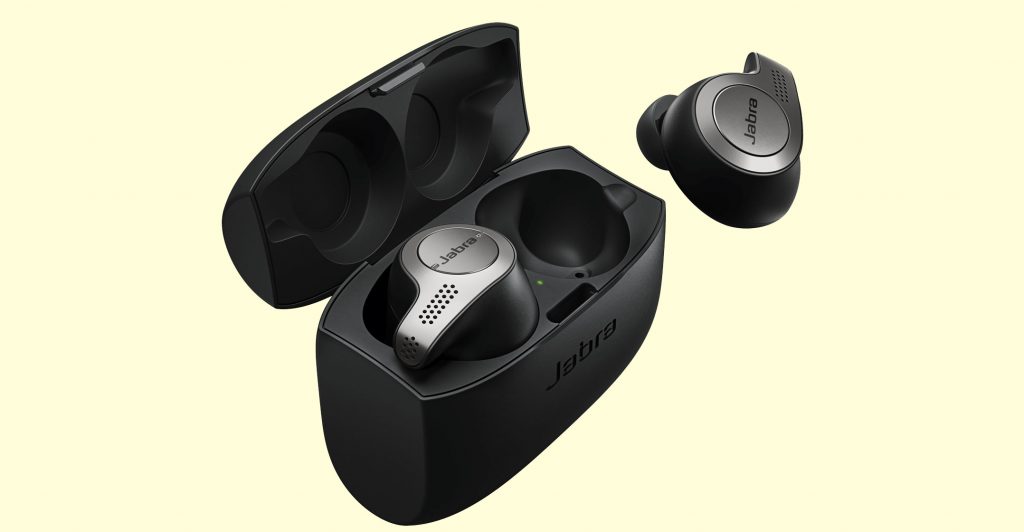
There are plenty of wireless headphones on the market for those looking to beat the boredom of exercise with a bit of music while avoiding getting tangled up in a mess of wires.
But Danish company Jabra has developed something a lot more desirable with its Sport Pulse Wireless earphones. These lightweight, Bluetooth headphones have a neat little trick: they’ll monitor your heart rate while you’re running a trail, biking up a mountain or hurtling down a ski slope — and they do it surprisingly well.
These in-ear headphones are certainly not cheap. They’re currently available at Incredible Connection stores for R2 999, but this is likely to rise to R3 399 when stock is replenished thanks to our sickly exchange rate.
That said, however, if you can afford the Jabras, they’ll do an excellent job of helping you meet your fitness goals and monitoring your heart rate while delivering a high-quality audio stream from a paired smartphone.
The Sport Pulse Wireless is a simple concept. Two lightweight ear pieces are connected via short piece of cable, which sits comfortably behind your neck during a run or cycle. A word of advice: don’t do what we did for our first few runs and let the cable dangle under your chin — it’ll soon become an irritation. The control buttons, allowing you to adjust volume or skip a track (or even bark instructions at Siri if you have an iPhone), sit within easy reach on your right shoulder when the tangle-free cable is allowed to dangle behind your neck.
The earbuds are water resistant, though on the one occasion we were out running the trails when the skies opened, rather than risk damaging them, we put them in a waterproof plastic bag. Weeks of testing, however, showed them to be immune to even copious volumes of sweat while running long distances in the height of the recent heatwave in Gauteng.
The earbuds come with three sets of ear hooks, allowing you to find the right fit to keep them securely lodged in your ears. It’s essential that you try all of them after purchase to find out which one offers the snuggest fit. In our case, the ear hooks they came pre-fitted with worked the best. Ensuring a proper fit is essential to ensure the heart-rate monitor works consistently.
Before you start a run, you must download the (excellent) companion app, Jabra Sport Life — it’s available as a free download in the App Store or from Google Play.
Pairing the device via Bluetooth is a snap. Thereafter, each time you run or bike, you simply hold down the button between the volume up and down buttons for a few seconds, and the device automatically pairs with your phone, informing you about a successful connection through the earphones.

From there, you have a range of options before setting out in the wild beyond (or, heaven forbid, stepping onto a treadmill). You can set a range of goals, include a distance or time target, a calorie burn target or even a cadence goal.
Other options include setting a heart rate zone training target, creating an interval training workout or simply setting a target pace. For the most part, though, we simply selected the “just track me option”, which provides audio feedback throughout the run about your distance, your heart rate, your cadence and other details.
The voice read-outs are entirely customisable in the settings, so you are able to ensure you get only the feedback you are interested in.
For an update at any time during exercise, you simply tap the “Sport” button on the left earphone for an audio update. You never need to haul out your phone — risking crashing into a tree or tripping over your feet — to get an update on how you’re doing.
The heart rate monitor is probably the main reason you’ll consider buying this device, and the good news is it works surprisingly well. Within seconds of popping in the left earphone, you’ll hear the “heart rate detected” audio notification. Only once or twice during dozens of runs did the device warn us that it couldn’t detect a heartbeat. And whenever that happened, it found it again a second later.
Great sound quality
According to Jabra, the Sport Pulse Wireless uses an “optomechanical” sensor. It works by shining light against the skin inside your ear to pick up your pulse and oxygen consumption. Apparently, the inner ear is one of the best places in the human body to monitor your heart rate.
For music, you can select a wide range of apps. We tested the Jabra by pairing it to an Android smartphone (an HTC One M9) and were pleased to see the app integrated seamlessly with Google Play Music (our streaming service of choice; others are supported, too). We simply put Play Music into “downloaded only” mode to avoid our cellular service provider’s extortionate data charges, and off we went. From there, it’s easy to skip tracks using the control buttons over your right shoulder. Heck, you can even take a call while on the road or the trail without having to touch your phone.
The sound quality is great, too. There’s decent (but not excessive) bass for in-ear buds and the volume can go well above comfortable listening levels without much distortion.
Using your phone’s GPS, you can accurately track distance travelled and even map out your run or cycle. We didn’t test the earphones in a gym or in a stationary position, but when used out on the trails, they were just as accurate as our trusty Garmin GPS runners’ watch.
Some reviewers have griped about the Sport Pulse’s battery life, though even when out exercising for three or four hours, the juice never ran out for us. Apparently, they’ll last up to about five hours before you’ll need to recharge them via USB (the micro USB port is in the right earpiece). Not surprisingly, the heart-rate monitor is reportedly quite a sap on power. Still, given their light weight, the battery life is not half bad.
Of course, ultramarathon runners won’t be able to use them to go the full distance. But most runners, even those running half marathon to full marathon distances, should be okay — provided they start on a full charge.
Pricey but excellent
In summary, then, the Jabra Sport Pulse Wireless earphones, although on the pricey side (and likely to get pricier thanks to the tumbling rand), are an excellent buy.
The in-ear heart-rate monitor works perfectly, the earphones are comfortable to wear, the audio quality they output is excellent and the accompanying app offers plenty of options to improve your fitness. If you don’t mind running and biking with your phone, we’d recommend them highly. — © 2016 NewsCentral Media
- Review unit supplied by Circuit City Electronics




